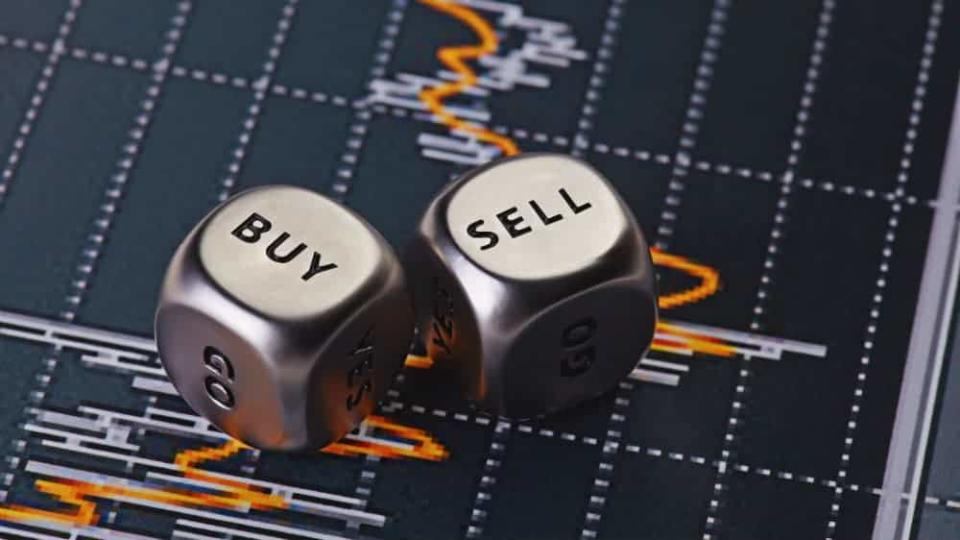1 Stock to Buy and 1 to Ignore in the COVID-19 Pandemic

If the COVID-19 uncertainty were not enough, the growing tensions between the U.S. and China are fuelling fears of a new trade war. On top of this uncertainty, the first-quarter earnings gave a glimpse of the financial impact of the COVID-19 pandemic. Investors hate uncertainty. Hence, they are selling once again, as the road to recovery is nowhere in sight.
The Canadian economy has entered a recession, and things could worsen. The 2008 financial crisis lasted 15 months. The COVID-19 crisis could last longer. Even Warren Buffett, who purchased in the 2008 crisis, is selling in the COVID-19 crisis.
When markets are uncertain, one strategy is to move to safe-haven investments like gold and bonds, as global central banks release massive stimulus packages. However, Buffett favours stocks over 30-year U.S. Treasury bonds that give just 1.25% yields. Such low interest rates will not protect investments from inflation. Hence, it is better to buy defensive stocks that pay regular dividends and are unaffected by an economic downturn.
Loblaw: A stock to buy in the pandemic
At a time when most businesses are cutting costs and suspending shareholder returns to withstand revenue declines, Loblaw (TSX:L) is doing the opposite. In the height of the pandemic, when most stores were closed, only essentials were open. Loblaw’s retail stores sell essentials like food and medicine to 90% of Canadians. Hence, it is one of the major beneficiaries of the COVID-19 pandemic.
Pandemic-driven lockdown changed the way people buy groceries. When the lockdown began in March, people started panic buying. In 14 days that ended on March 21, Loblaw’s customer counts and basket size rose fourfold, earning $768 million in pandemic-driven sales.
Even after the March panic buying, Loblaw’s sales are growing. Consumers have become less concerned about price and more concerned about social distancing. They prefer Superstores over small, crowded discount stores. They are opting for online grocery and curbside pickup. Until the COVID-19 pandemic subsides, these high sales volumes could become Loblaw’s new normal.
The high sales volumes come at a cost. Loblaw is spending $90 million every month on sanitization, additional workforce, and temporary pay premiums. However, its advantages overtake its disadvantages. The company has positive free cash flows and $2.2 billion in cash and short-term investments, which means it can continue to pay a dividend during the pandemic. With a dividend yield of 1.85%, Loblaw stock is a better investment than a 30-year Treasury bond.
Air Canada: A stock to avoid in the pandemic
Air Canada (TSX:AC) is the exact opposite of Loblaw. For a long time, Buffett avoided the airline industry because of its substantial operating cost, which eats up 90% of its revenue. This enormous cost forced many airlines to consolidate or file for bankruptcy during an economic downturn. Even AC filed for bankruptcy in 2003 when the SARS epidemic severely impacted air travel to Asian nations.
The COVID-19 pandemic is bigger than SARS, and the global lockdown has disrupted air travel. A 15-day lockdown in the first quarter pushed major North American airlines into losses. AC and American Airlines reported an adjusted net loss of $392 million and $1.1 billion, respectively. These losses will only widen with the prolonged lockdown.
AC will operate at just 10-15% capacity in the second quarter and 25% capacity in the third quarter. Even if the lockdown eases, industry veterans believe that it could take five to seven years for domestic and international air travel to return to pre-pandemic levels. The long duration of recovery means multiple years of losses and a high risk of bankruptcy for airlines. AC stock can fall to $0 if the company files for bankruptcy. Hence, it is better to avoid airline stocks in the current pandemic.
Foolish takeaway
The COVID-19 pandemic is impacting Loblaw and AC differently. Loblaw stock rose 12.4% in the first four months of 2020, outperforming the TSX Composite Index, which fell 11%. However, AC stock fell 65% year to date. Flowing with the tide, Berkshire Hathaway purchased grocery stocks and sold airline
The post 1 Stock to Buy and 1 to Ignore in the COVID-19 Pandemic appeared first on The Motley Fool Canada.
More reading
The Motley Fool owns shares of and recommends Berkshire Hathaway (B shares) and recommends the following options: long January 2021 $200 calls on Berkshire Hathaway (B shares), short January 2021 $200 puts on Berkshire Hathaway (B shares), and short June 2020 $205 calls on Berkshire Hathaway (B shares). Fool contributor Puja Tayal has no position in the companies mentioned.
The Motley Fool’s purpose is to help the world invest, better. Click here now for your free subscription to Take Stock, The Motley Fool Canada’s free investing newsletter. Packed with stock ideas and investing advice, it is essential reading for anyone looking to build and grow their wealth in the years ahead. Motley Fool Canada 2020

 Yahoo Finance
Yahoo Finance 